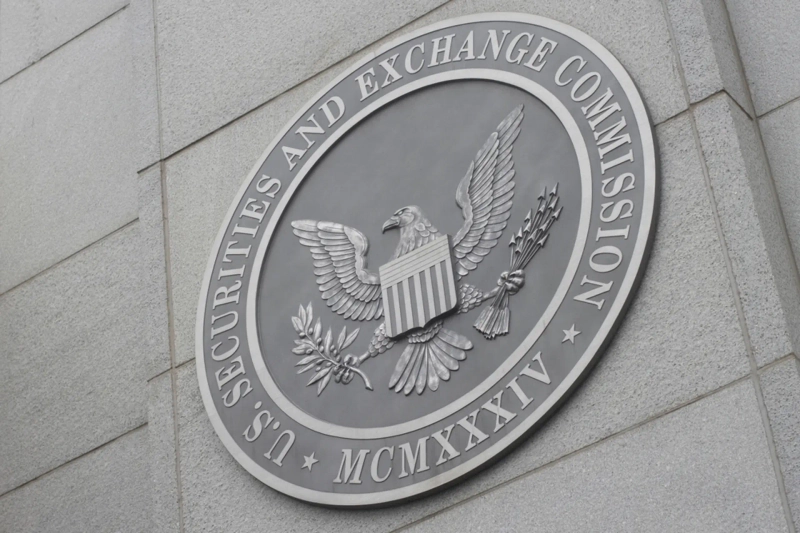Instructions

In a landmark move, the U.S. Securities and Exchange Commission (SEC) is set to revolutionize the cryptocurrency landscape through a comprehensive regulatory transformation. The agency has unveiled an ambitious plan to bring much-needed clarity and structure to the rapidly evolving digital asset market.
This regulatory overhaul signals a significant shift in how cryptocurrencies will be monitored, traded, and managed in the United States. By introducing more robust guidelines, the SEC aims to protect investors, reduce market volatility, and establish a more transparent framework for digital currency operations.
The proposed changes come at a critical time when the cryptocurrency market has experienced unprecedented growth and increasing complexity. Investors, blockchain companies, and financial experts are closely watching the SEC's next steps, anticipating how these new regulations will reshape the future of digital finance.
While specific details of the full regulatory plan are still emerging, the SEC's commitment to addressing the unique challenges of cryptocurrency demonstrates a proactive approach to integrating innovative financial technologies within existing regulatory structures.
Cryptocurrency Regulation Revolution: SEC's Bold Move to Reshape Digital Finance
In the rapidly evolving landscape of digital finance, the U.S. Securities and Exchange Commission (SEC) stands at the precipice of a transformative moment, poised to redefine the regulatory framework for cryptocurrencies. As the digital asset ecosystem continues to expand and challenge traditional financial paradigms, the SEC's upcoming regulatory overhaul promises to bring unprecedented clarity, stability, and investor protection to this dynamic market.
Navigating the Crypto Frontier: Regulation That Could Change Everything
The Regulatory Landscape: Understanding the SEC's Strategic Approach
The SEC's comprehensive regulatory strategy represents a nuanced and multifaceted approach to addressing the complex world of digital assets. Unlike previous piecemeal attempts, this overhaul signals a holistic reimagining of how cryptocurrencies will be integrated into the broader financial ecosystem. Regulatory experts suggest that the commission is developing a framework that balances innovation with robust investor safeguards, recognizing the transformative potential of blockchain technology while mitigating associated risks.
Cryptocurrency markets have long operated in a regulatory gray zone, with entrepreneurs and investors navigating uncertain legal terrain. The SEC's new approach aims to provide clear guidelines that will help legitimate projects thrive while creating significant barriers for potentially fraudulent or high-risk ventures. This strategic intervention could potentially stabilize market dynamics, attract institutional investors, and foster more responsible innovation in the digital asset space.
Technological Innovation and Regulatory Challenges
The intersection of cutting-edge technology and financial regulation presents unprecedented challenges for policymakers. Cryptocurrencies and blockchain technologies represent a fundamental disruption to traditional financial systems, requiring regulators to develop entirely new frameworks of understanding and oversight. The SEC's current efforts reflect a deep recognition that existing regulatory models are inadequate for addressing the unique characteristics of digital assets.
Blockchain's decentralized nature poses significant challenges for traditional regulatory approaches. Unlike centralized financial systems, cryptocurrencies operate on distributed networks that transcend geographical boundaries. The SEC must develop sophisticated mechanisms to track, monitor, and potentially regulate these complex technological ecosystems without stifling the innovative potential that makes them so revolutionary.
Investor Protection in the Digital Asset Ecosystem
Central to the SEC's regulatory strategy is a robust commitment to investor protection. The cryptocurrency market has been historically volatile and vulnerable to manipulation, with numerous instances of fraud and market abuse. By establishing clear guidelines and enforcement mechanisms, the SEC aims to create a more transparent and secure environment for digital asset investments.
The proposed regulations are expected to introduce more stringent disclosure requirements, enhanced reporting standards, and more comprehensive risk assessment protocols. These measures will likely require cryptocurrency exchanges, token issuers, and related financial intermediaries to implement more rigorous compliance mechanisms, potentially reducing market volatility and increasing overall market integrity.
Global Implications and International Collaboration
The SEC's regulatory approach is not occurring in isolation but represents part of a broader global conversation about digital asset governance. As various international jurisdictions develop their own regulatory frameworks, the United States' approach could serve as a critical model for other countries navigating similar challenges.
Potential collaboration with international regulatory bodies could create more standardized global approaches to cryptocurrency regulation. This might involve sharing investigative resources, developing common standards for digital asset classification, and creating more seamless cross-border regulatory mechanisms that can effectively address the inherently global nature of cryptocurrency markets.
Future of Digital Finance: Adaptation and Evolution
The SEC's regulatory overhaul represents more than just a set of rules; it symbolizes a fundamental reimagining of financial infrastructure in the digital age. By providing clear guidelines and establishing robust oversight mechanisms, the commission is laying the groundwork for a more mature, stable, and innovative digital asset ecosystem.
As blockchain technology continues to evolve, regulatory frameworks must remain flexible and adaptive. The SEC's current efforts suggest a forward-looking approach that seeks to balance innovation with responsible governance, potentially setting a new standard for how emerging technologies can be effectively integrated into existing financial systems.
